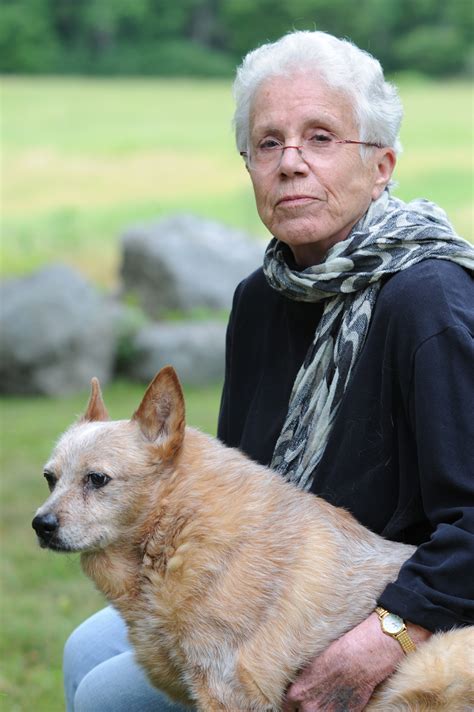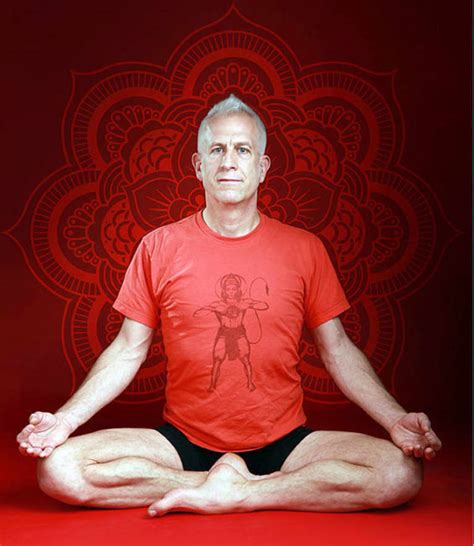A Quote by Cesar Millan
Years later, my wife, Ilusion, woke me up to the realization that you can't just "dump" your whole species simply because you've had a few bad encounters with some of its members. ... Intimacy's a greater goal to seek. ...That true knowledge of intimacy within our own species will allow us to pass it along to interspecies relations.
Related Quotes
...we sacrifice other species to our own not because our own has any objective metaphysical privilege over others, but simply because it is ours. It may be very natural to have this loyalty to our own species, but let us hear no more from the naturalists about the "sentimentality" of anti-vivisectionists. If loyalty to our own species - preference for man simply because we are men - is not sentiment, then what is?
My aim is to advocate that we make this mental switch in respect of our attitudes and practices towards a very large group of beings: members of species other than our own - or, as we popularly though misleadingly call them, animals. In other words, I am urging that we extend to other species the basic principle of equality that most of us recognize should be extended to all members of our own species.
Racists violate the principle of equality by giving greater weight to the interests of members of their own race when there is a clash between their interests and the interests of those of another race. Sexists violate the principle of equality by favoring the interests of their own sex. Similarly, speciesists allow the interests of their own species to override the greater interests of members of other species. The pattern is identical in each case.
Marriage is a way to avoid intimacy. It is a trick to create a formal relationship. Intimacy is informal. If a marriage arises out of intimacy it is beautiful but if you are hoping that intimacy will arise out of marriage, you are hoping in vain. Of course, I know that many people, millions of people, have settled for marriage rather than for intimacy - because intimacy is growth and it is painful.
And what we're looking toward is a moment when the artificial language structures which bind us within the notion of ourselves are dissolved in the presence of the realization that we are a part of nature. And when that happens, the childhood of our species will pass away, and we will stand tremulously on the brink of really the first moment of coherent human civilization.
When I am at a dinner table, I love to ask everybody, 'How long do you think our species might last?' I've read that the average age of a species, of any species, is about two million years. Is it possible we can have an average life span as a species? And do you picture us two million years more or a million and a half years, or 5,000?
Most species do their own evolving, making it up as they go along, which is the way Nature intended. And this is all very natural and organic and in tune with mysterious cycles of the cosmos, which believes that there's nothing like millions of years of really frustrating trial and error to give a species moral fiber and, in some cases, backbone.
Misanthropes have some admirable if paradoxical virtues. It is no exaggeration to say that we are among the nicest people you are likely to meet. Because good manners build sturdy walls, our distaste for intimacy makes us exceedingly cordial "ships that pass in the night." As long as you remain a stranger we will be your friend forever.
We ourselves are part of a guild of species that lie within and without our bodies. Aboriginal peoples and the Ayurvedic practitioners of ancient India have names for such guilds, or beings made up (as we are) of two or more species forming one organism. Most of nature is composed of groups of species working interdependently.
Delirious as it can be, sex is only one kind of intimacy, and yet has become the cultural catchment area for all kinds of needs because our understanding of intimacy is so poor. Brutal work schedules, related geographic isolation, and the concomitant fracturing of families has meant that there is little time for intimacy, and even less to teach the necessary skills. But intimacy, the axis of romance, is slow, based on the sharing of a life rather than show. In terms of intimacy, folding laundry together or sharing the feeding of a child can have more impact than the most extravagant bouquet.
An infinity of these tiny animals defoliate our plants, our trees, our fruits... they attack our houses, our fabrics, our furniture, our clothing, our furs ... He who in studying all the different species of insects that are injurious to us, would seek means of preventing them from harming us, would seek to cause them to perish, proposes for his goal important tasks indeed.


































